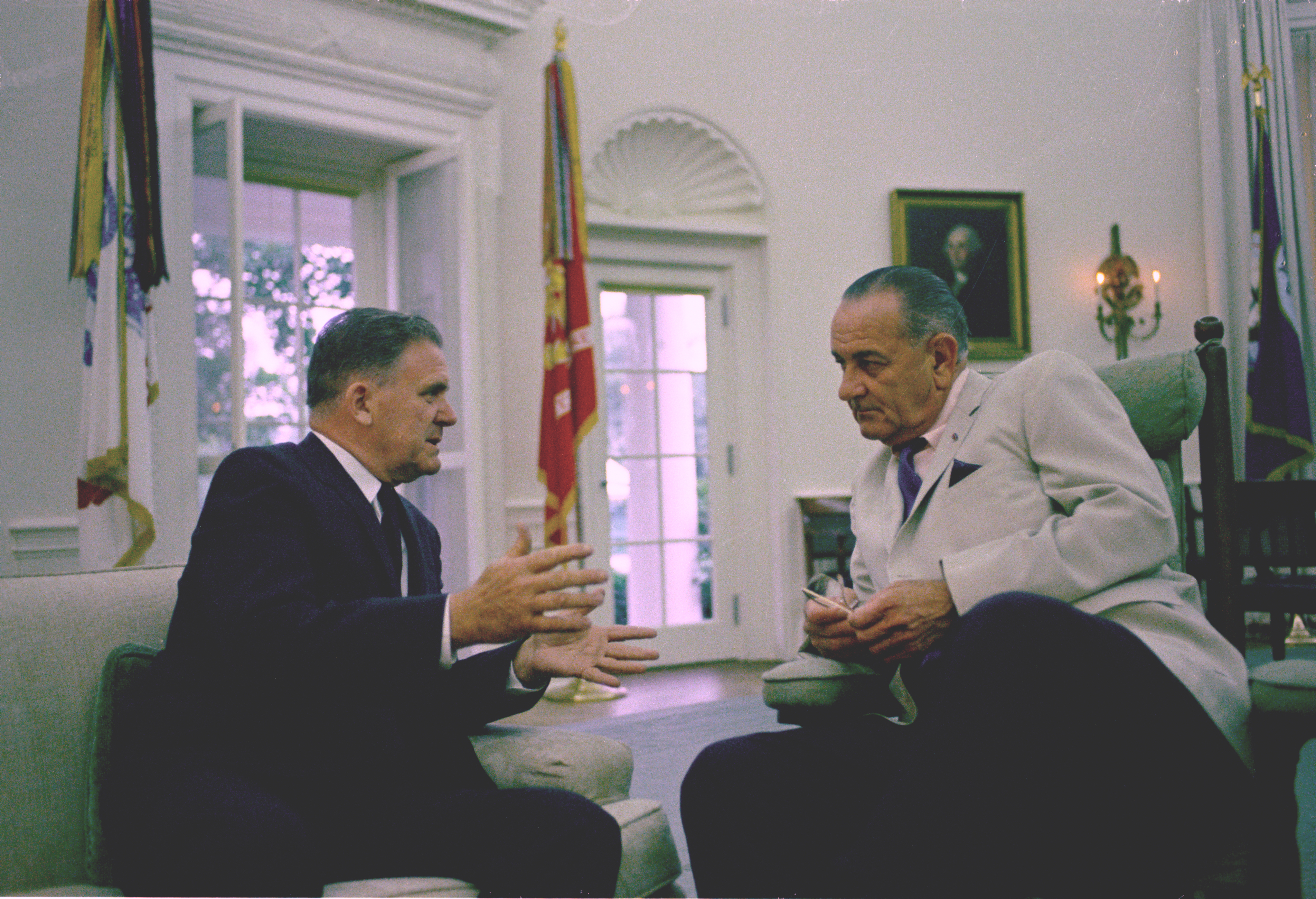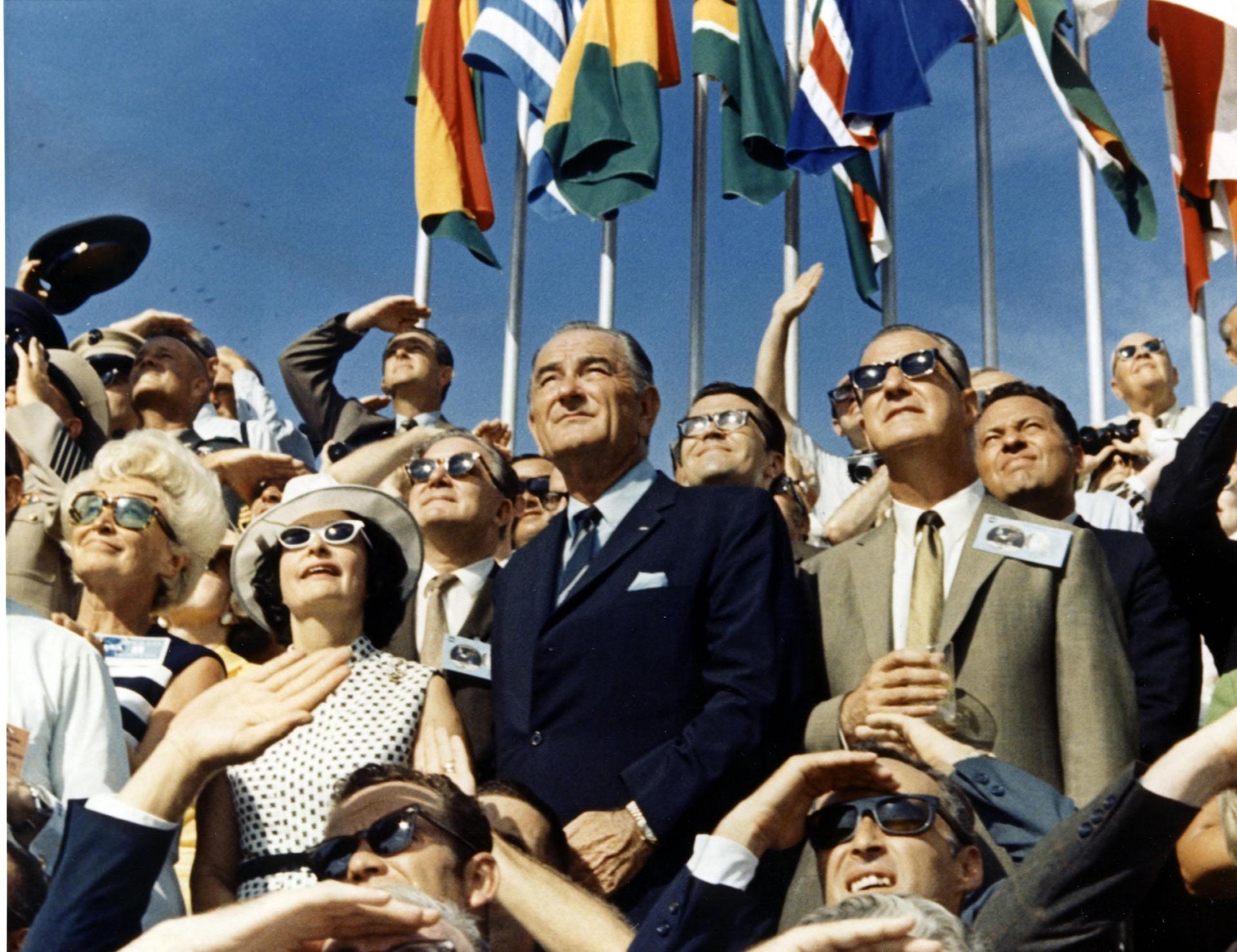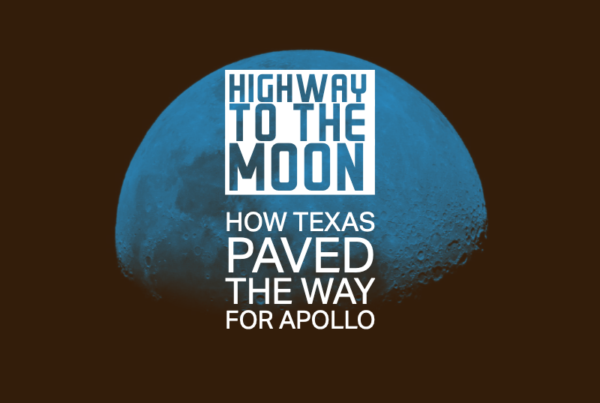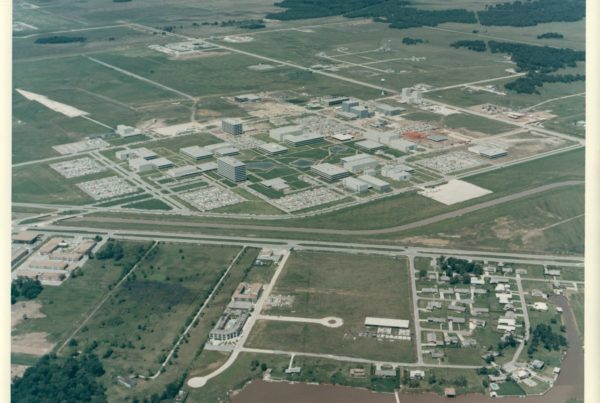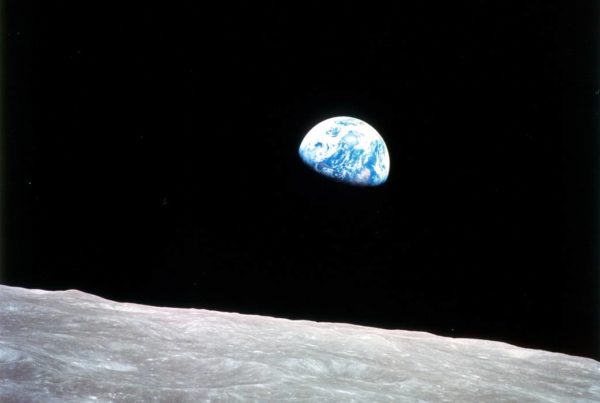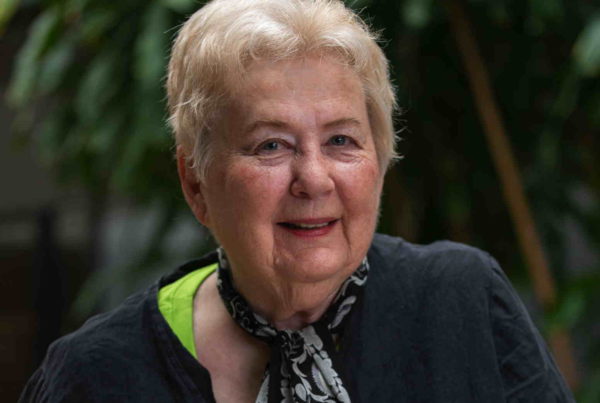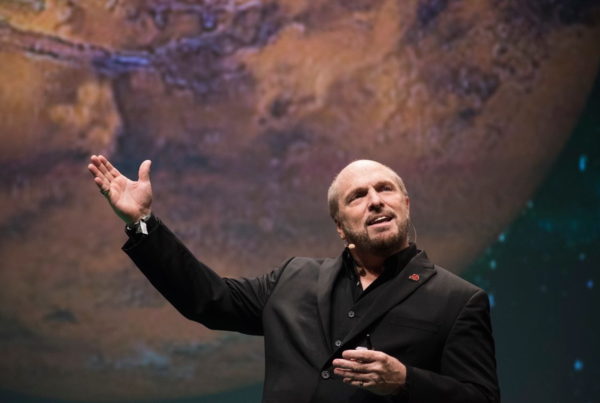On Oct. 4, 1957, Senate Majority Leader Lyndon B. Johnson, and his wife Lady Bird, were entertaining friends at their ranch in the Texas Hill Country. The Johnsons often took after-dinner walks – a habit they developed after he had a heart attack in 1955 – and so they did that evening.
“The sky was like velvet, and the stars hung close, like brilliant diamonds around us,”Lady Bird Johnson said in a later recording, reading from her diary.
This stroll felt different though. As they walked the road from the ranch house to the Pedernales River, the group was quiet, tense even. They’d learned that a 184-pound metal orb was circling the earth. It was called “Sputnik,” and the Russians had put it there – the first manmade satellite in human history. Even on the ranch, removed from the wider world, they could feel something had changed.
“Each of us was pondering what the future now held. We had lived with the sky all our lives. And suddenly, it was as though we had never seen it before,” Lady Bird said.
In 1957, a Soviet satellite wasn’t a cosmic curiosity; it was a real threat – a nuclear threat. The public imagination was gripped by the idea that the Russians could bomb the United States from space. A few days after Sputnik launched, Johnson got a memo from an aide named George Reedy, urging the Senate majority leader to push for more aggressive space exploration. He saw an opportunity for good public policy – and good politics. John Logsdon is professor emeritus at the Space Policy Institute at George Washington University.
“That was Reedy’s message, that this was something that’s a good thing to do. Plus, it will be attractive to the public and position you, as Reedy said, and make you president,” Logsdon says.
Johnson ran with Reedy’s idea. He came to believe that control of space meant control of the world. For the next decade, Johnson worked to make sure that Americans were those controllers.
“Would we be on the moon without Lyndon Johnson? I think the answer is no,” Logsdon says.
A few weeks after Sputnik, Johnson called a series of congressional hearings to evaluate the United States’ space program versus Russia’s. Here he describes some of the findings in an episode of “Face the Nation“:
“I think the Soviet Empire has given more stress to this field than we have. We have not had the proper sense of urgency, and I don’t think we have the proper sense of urgency now,” Johnson said.
To remedy that, Johnson wrote, and championed, the Space Act in 1958. The bill did a few things: first and foremost, it established NASA, but it also kept government in control of spaceflight technology, and ensured that military and civilian space development were independent of each other. It was a landmark piece of legislation for which LBJ could claim much of the credit. But it wasn’t enough to put him on top of a presidential ticket in 1960. Instead, he became John F. Kennedy’s running mate.
“It’s Kennedy, Kennedy, Kennedy, Kennedy, Kennedy, Kennedy, Kennedy, for me,” went the catchy campaign advertisement.
The Kennedy-LBJ ticket squeaked past Richard Nixon to win the White House. But Kennedy’s primary interests were foreign policy and civil rights. Space was the kind of thing a vice president could deal with. Johnson wanted the responsibility though. He chaired the National Space Council, working in relative obscurity until April 1961 when the Soviets took another step forward.
On April 12, Russian cosmonaut, Yuri Gagarin, orbited the earth for 108 minutes.
“The space pilot whom the Russians have deified as the ‘Man of the Century,’ arrives at the airport outside of Moscow for his first public appearance, as the crowds go wild over the first man to conquer space,” said an announcer in a newsreel at the time.
Just as Sputnik spurred Johnson to get Americans into space, Gagarin did the same for Kennedy. Eight days after the flight, Kennedy fired off a memo to his vice president, tasking him with an honest update on America’s space status. He wanted to know if the United States could beat the Soviet Union in a space race. Could we land a rocket on the moon, or, put a man on the moon and bring him back? Johnson polled the country’s foremost scientists and engineers. A week later, he responded to Kennedy’s question:
“A very strong recommendation, which turned out to be to send people to the moon,” Logsdon says Johnson told Kennedy.
It was the answer Kennedy wanted. He needed a win. In addition to Gagarin’s flight lengthening the shadow of Soviet supremacy in space, his administration was also trying to recover after the Bay of Pigs debacle, when the CIA tried, and failed, to overthrow the Communist Cuban government. Within three weeks of Johnson’s response, Kennedy addressed Congress.
“I believe that this nation should commit itself to achieving the goal, before this decade is out, of landing a man on the moon and returning him safely to the earth,” he said.


